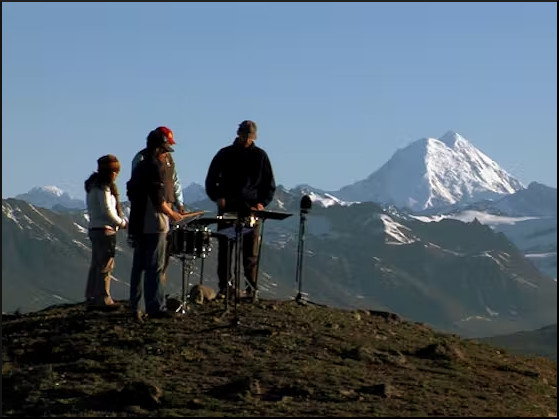Does classical want a new audience or a larger old audience?
In a 1982 interview Merce Cunningam described how John Cage's satori came when he separated sound from meaning. Today in the classical world the assumption that sound must have meaning dominates. Programmatic symphonies are supplemented by film music and musicals with meaningful narratives, and socially meaningful - aka virtue signalling - programming in a futile attempt to attract a new audience. But the target for a new classical audience is, by definition, the non-classical audience. And that non-classical audience values sound far above meaning.
Do classical experts realise that electronic dance music (EDM) is the default soundtrack of a large chunk of the non-classical audience? Do these experts realise that the hegemony of ear-bud/headphone listening and bass-heavy Atmos mixes have permanently changed the expectations of non-classical listeners? Is this preoccupation with meaning why recorded sound is so rarely mentioned in classical reviews? Did Proms' attendances collapse in the Glock era when Boulez and his sound-focused peers took centre stage and shared it with 'never mind the meaning, feel the sound' Soft Machine? Was Jonathan Harvey wrong when he suggested that the classical community should be more open minded about amplification?* Does classical want a vigorous new audience or a larger old audience?
To connect with a new audience classical music needs to understand how that new audience thinks, as evidenced by an online review of Steve Roach's A Soul Ascends. This proposes that: "To call something an “ambient symphony” is almost a contradiction in terms, but if any work deserved that description, it is this one. Perhaps “requiem” is the more fitting term, given the wistful, in not quite melancholic, tone here". Steve's masterwork may not fall within the traditional definition of a symphony or requiem, but it falls within the very different and relevant definition adopted by a wider audience, and the classical industry should take note of that.
To thrive and survive the classical industry needs to be far more receptive to music that separates sound from meaning, which means embracing everything from electronica to ambient sounds. One outstanding example of separating sound from meaning is the composer John Luther Adams. A downside of technology is that it encourages categorisation, and it is quite wrong that JLA has been categorised as a 'nature composer'. He is a composer period, whose sound palete extends far beyond the constraints of a traditional symphony orchestra - as does the sound palette of the creators of the default music of the non-classical audience.
The header image is from the 2011 video about John Luther Adams' essay in sonic geography Strange and Sacred Noise. His recent recorded composition's have also proved that sound without meaning is as powerful as sound with meaning. These include his electro-acoustic Houses of the Wind which electronically manipulates the sound of the wind, and Sila: the Breath of the World which pays homage to the forces of nature at frequencies low enough to chill out any EDM addict. Incidentally, my thanks go to Norman Lebrecht for his recommendation. As soon as I saw that Norman had given the Sila CD a one-star review titled 'The Bore of the World' I rushed out and bought it.
"We want the artist [read 'composer'] to scratch our backs in the old familiar places, when we should be able to mount behind him on his Pegasus, that we might see the world from his many points of vantage. We do not realize that the old familiar things were once new, spontaneous, even shocking, and therein lay the force and meaning of the spiritual energy which they embodied."
* This mention of amplification is certain to be met with howls of rage from the classical thought police. But the suggestion does not mean banks of PA speakers in classical music's hallowed 'acoustically perfect' designer concert halls. Whether the experts like it or not the pressure is on to make classical music more accessible by taking it out to new audiences, rather than expecting new audiences to come to inconvenient church-like city centre concert halls. Many accessible venues have problematic acoustics. Amplification is a misleading word which does not only mean making the music louder: it also means using the latest digital sound-shaping technologies to make marginal venues acoustically acceptable.












Comments